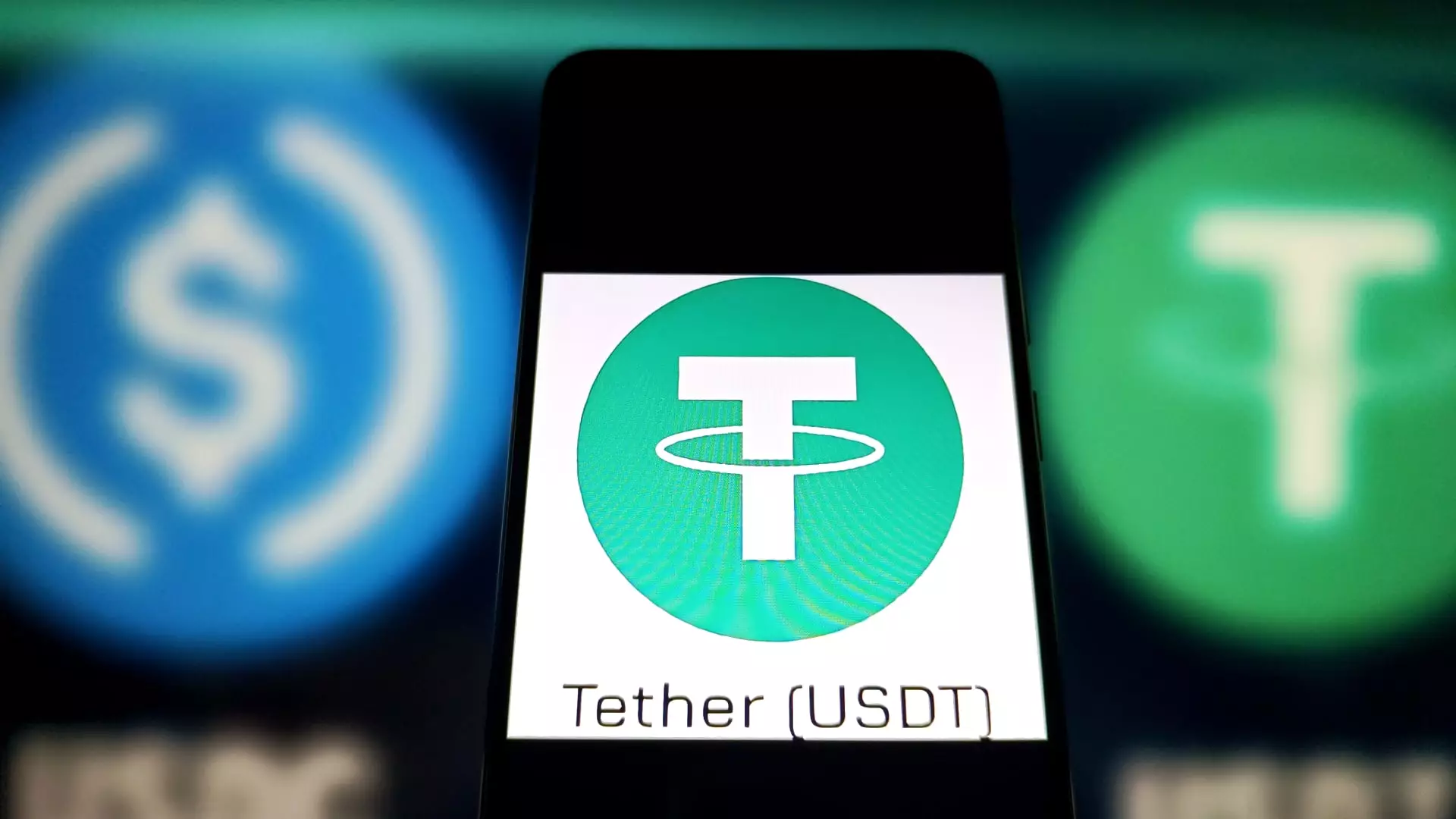In an era where digital currencies are becoming increasingly mainstream, Hong Kong has boldly stepped forward by passing a significant stablecoin bill. This legislative move comes as a response to the growing recognition of cryptocurrencies by governments worldwide and serves to address the unique challenges associated with stablecoins—assets that are pegged to stable real-world currencies or commodities, unlike their more volatile counterparts such as Bitcoin. By linking the value of stablecoins to tangible assets, the intention behind this new law aims to foster a safer and more reliable digital asset landscape.
The crux of the stablecoin legislation focuses on fiat-referenced secure tokens, now requiring their issuers to acquire licenses from the Hong Kong Monetary Authority (HKMA). However, it is crucial to understand that regulatory frameworks like this are not merely bureaucratic hurdles; they are essential mechanisms for promoting financial stability. In this context, Hong Kong’s decision to insist on proper asset management and segregation of client funds is a clear acknowledgement that as digital finance evolves, so must the safeguards that protect investors.
Setting New Standards in Global Finance
Hong Kong’s new policy establishes a robust framework that has the potential to set global benchmarks. The HKMA’s mandate for full reserve backing and stringent redemption guarantees is a move away from the somewhat haphazard regulatory attitudes previously seen in the crypto space. Industry expert YeFeng Gong from HashKey OTC highlighted that this regulatory clarity not only ensures the reliability that institutional investors seek but simultaneously positions Hong Kong as a frontrunner in compliant digital finance.
By instilling these requirements, Hong Kong is emphasizing the importance of reliability—essential to maintaining trust among traders and investors. This trust is a critical factor in moving the digital finance ecosystem from niche corners to mainstream acceptance. The HKMA’s involvement illustrates that the government is advocating for a proactive approach to regulation, one that reinforces investor confidence and promotes innovation in the finance sector.
A Global Ripple Effect
The initiative from Hong Kong is particularly notable given the timing, coinciding closely with the advancement of the GENIUS Act in the United States, which aims to create a foundational regulatory framework for stablecoin issuers. The synchronized efforts of different jurisdictions signal an urgent collective understanding that the evolution of stablecoins warrants regulatory intervention that harmonizes digital finance with traditional financial principles.
Moreover, with countries like Singapore, the European Union, the United Arab Emirates, and Japan also moving towards establishing their respective regulatory frameworks for digital currencies, the race towards a coherent global understanding of stablecoins is gaining momentum. Chengyi Ong from Chainalysis succinctly articulated the transformative scope of stablecoins. Their inherent stability allows them to address persistent problems within traditional finance, such as time-consuming cross-border transactions and ineffective settlement processes.
The Future of Financial Innovation
Hong Kong’s regulatory policy is not simply an isolated development; it feeds into a larger narrative concerning the future of digital finance. Stablecoins could play an integral role in enhancing the efficiency of financial systems worldwide, marrying the agility of digital assets with the stability of traditional financial mechanisms. Through precise regulatory measures, the path is being paved for high-quality stablecoins that promise to operate within a framework that emphasizes security and trustworthiness.
The future of financial innovation hinges on such advancements, as they not only promote legitimate use cases of cryptocurrencies but also lay the groundwork for broader adoption. The overarching message from this stablecoin bill is clear: meaningful regulation doesn’t stifle innovation; instead, it nurtures a more secure and flourishing digital asset environment. As governments around the globe recognize the necessity of regulation, we may witness a revitalization of trust—a much-needed sentiment in an economic landscape increasingly shaped by digital currencies.
The proactive steps taken by Hong Kong illustrate a significant shift in the regulatory landscape that could inspire others to follow suit, ultimately leading to a more secure, innovative, and trustworthy digital finance ecosystem.

